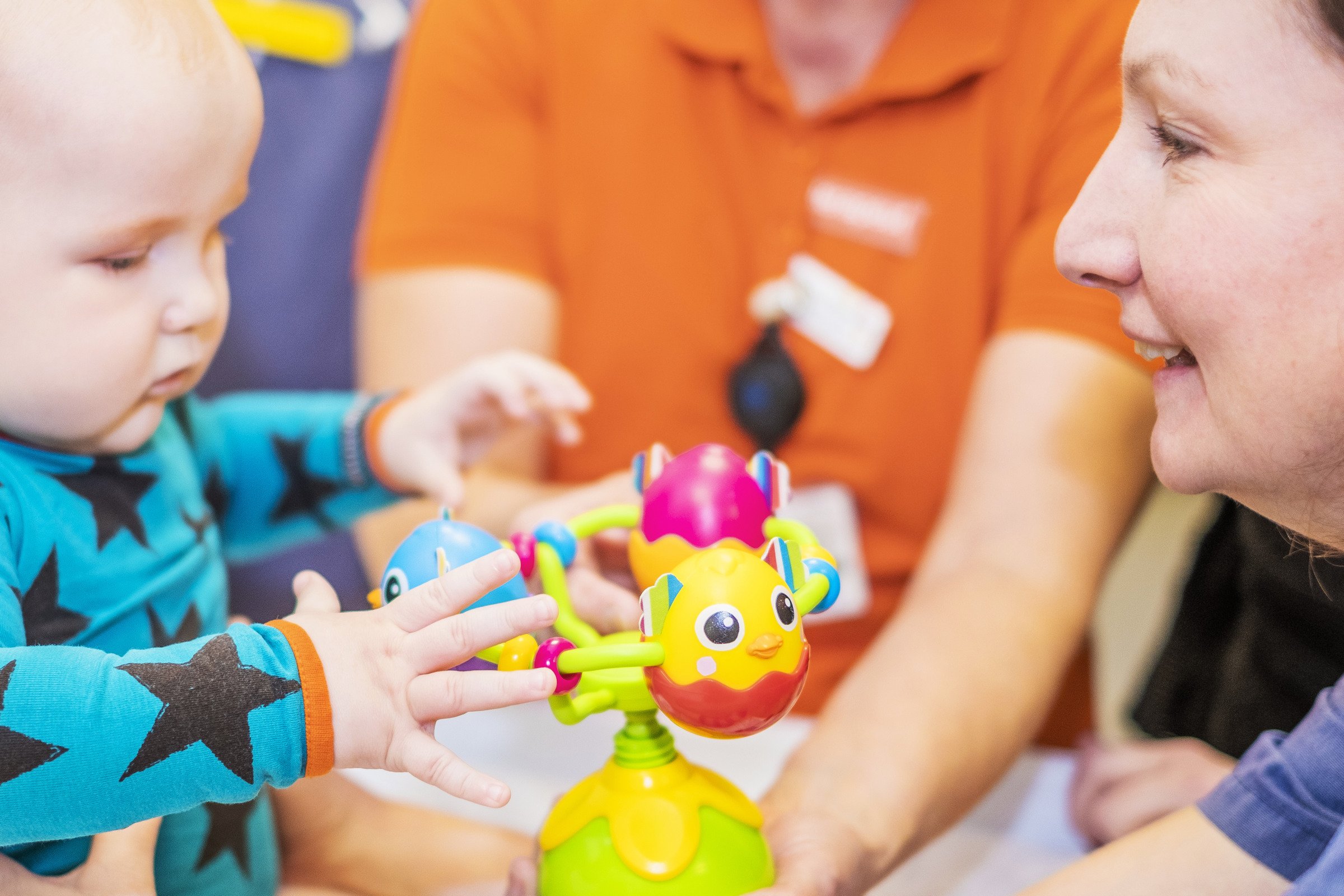Acquired Brain Injury - in children
The pediatric neuro-rehab team investigates, follows up on, and offers neurologically oriented rehabilitation to children and young people with acquired brain damage.
The team consists of many different professionals that are activated when needed. These professionals are important to cover the knowledge necessary for full rehabilitation. However, the most important people in rehabilitation are the child's next of kin, who know the child best.
Astrid Lindgren Children’s hospital is Sweden’s leading center for specialized and highly specialized pediatric care. With locations across Stockholm, we care for children from across the globe—offering expert treatment, innovative research, and family-centered support in a safe and inclusive environment.
